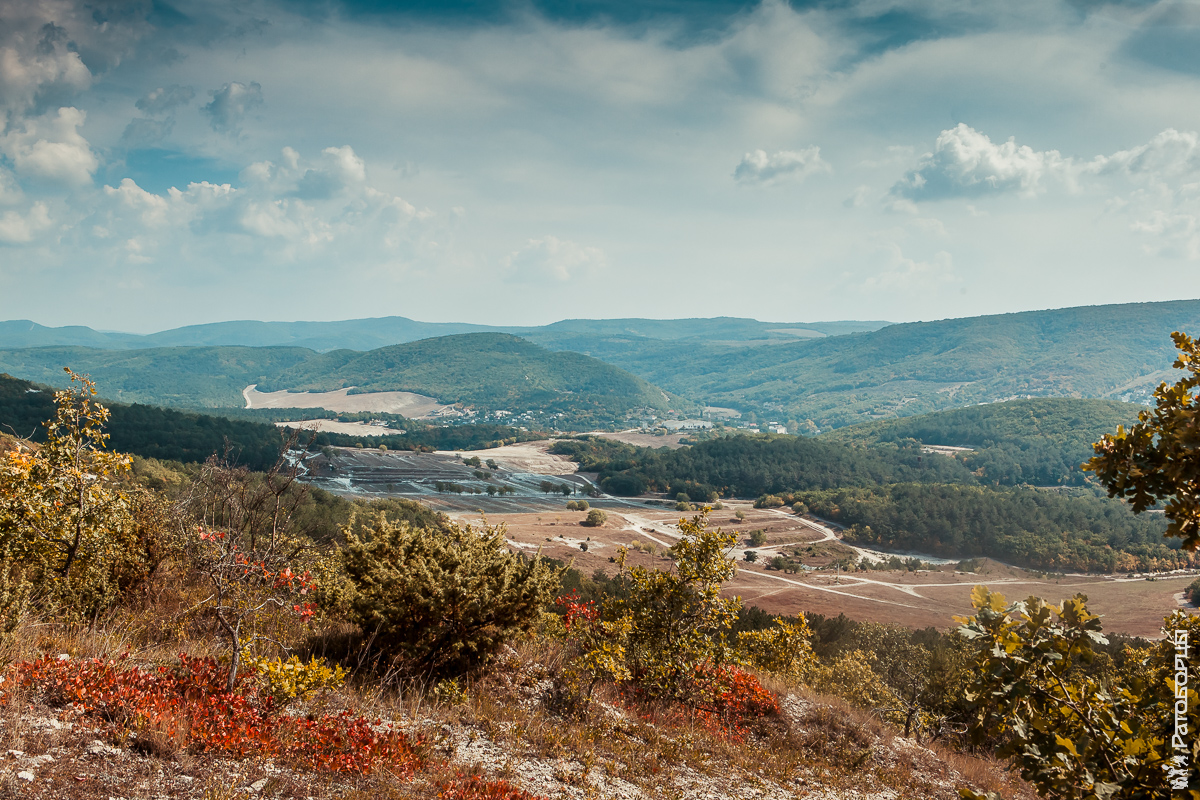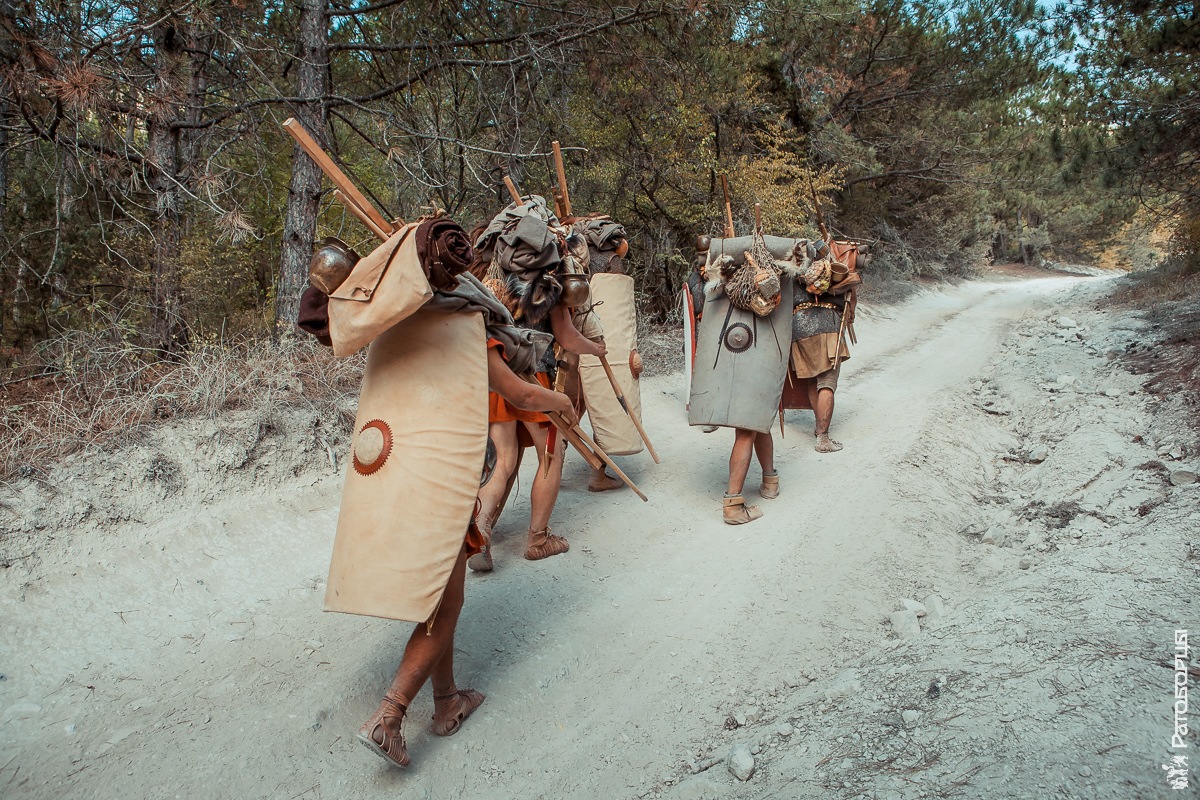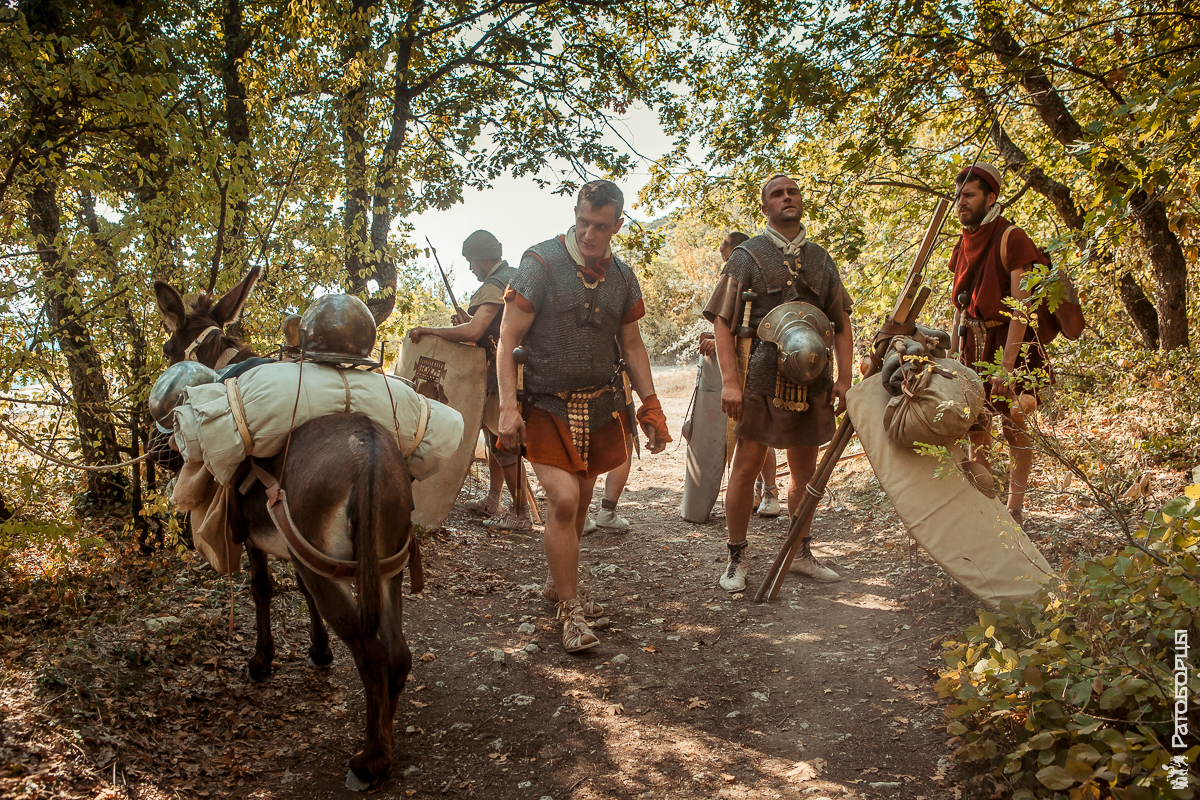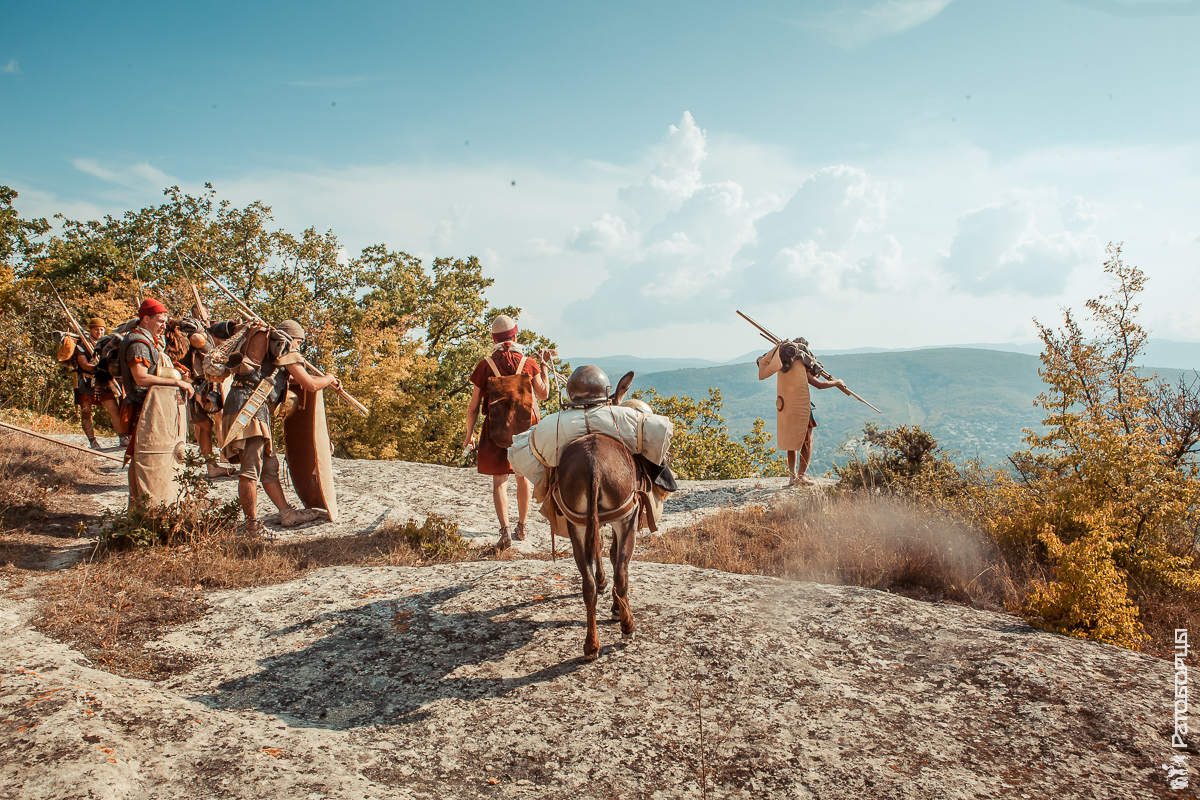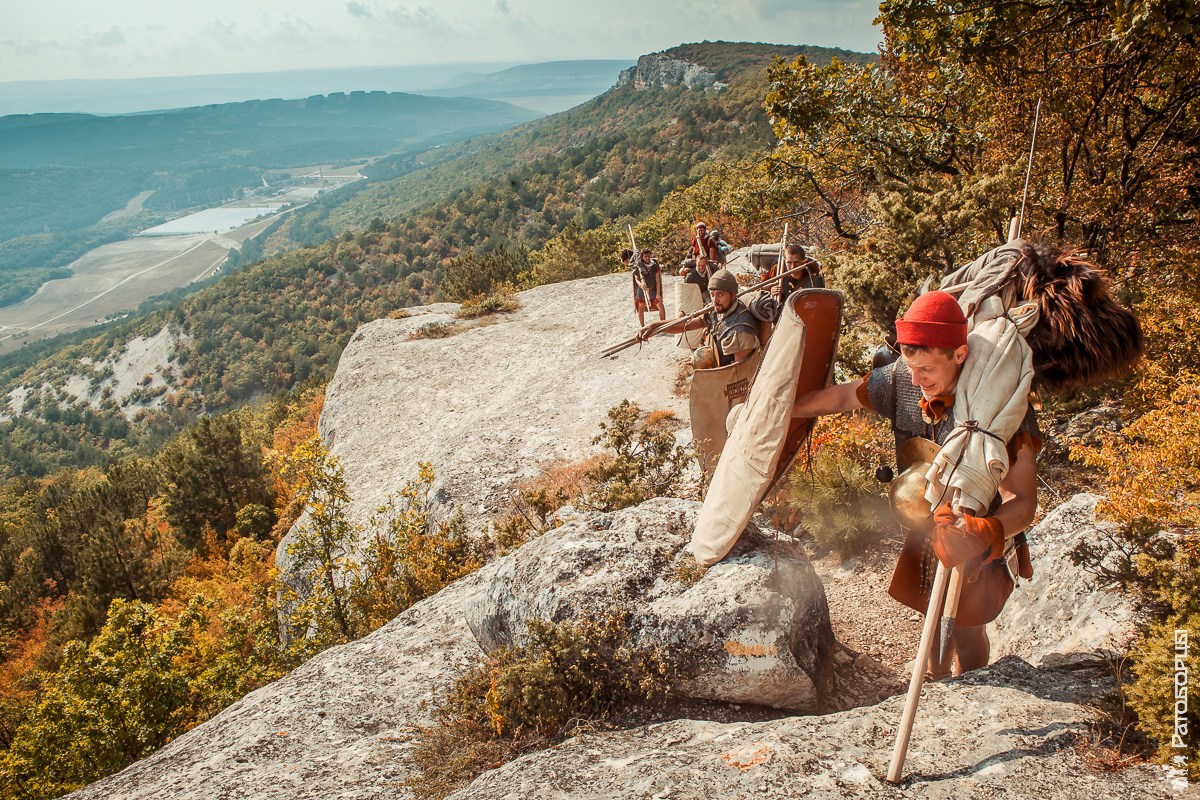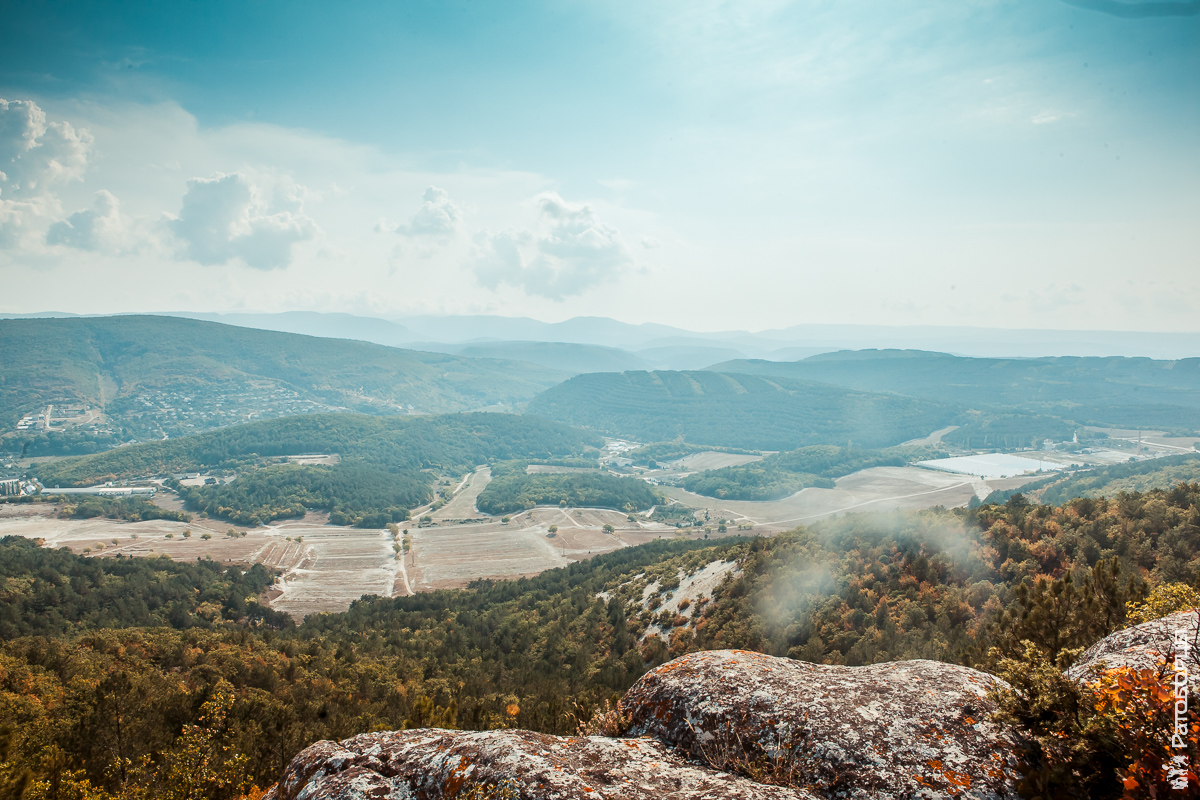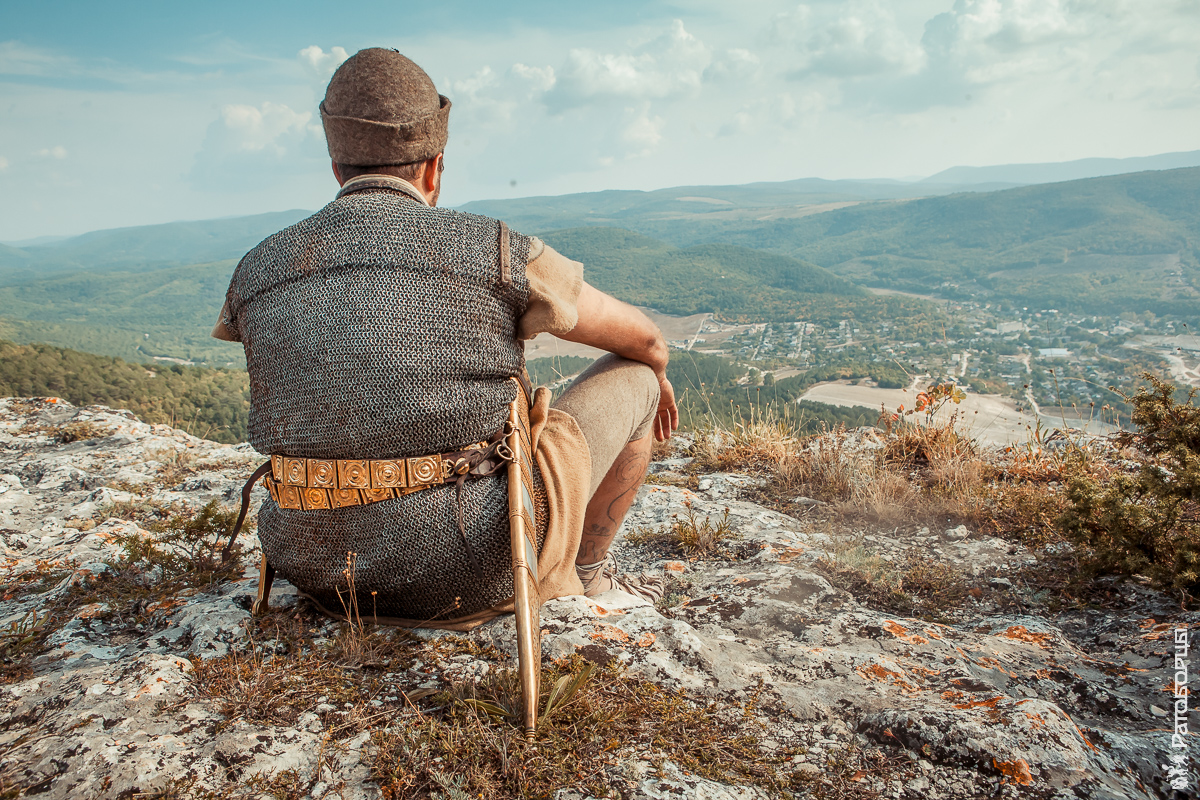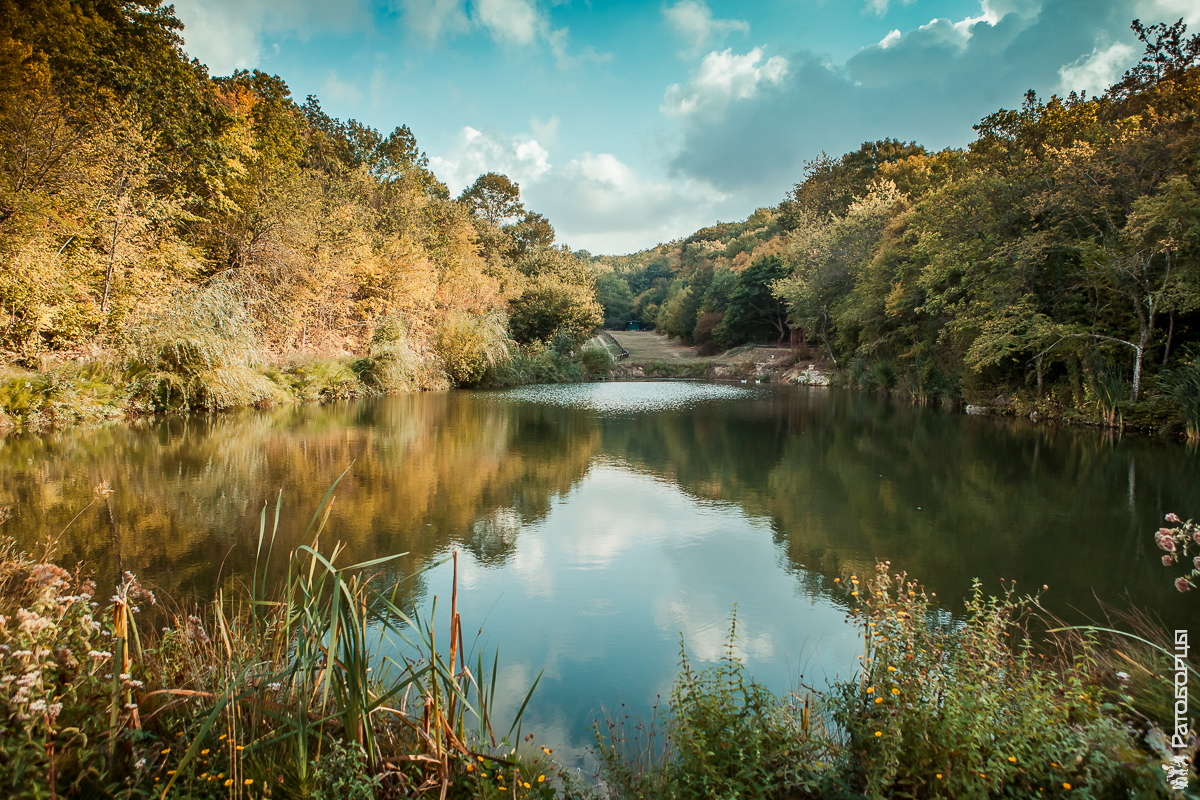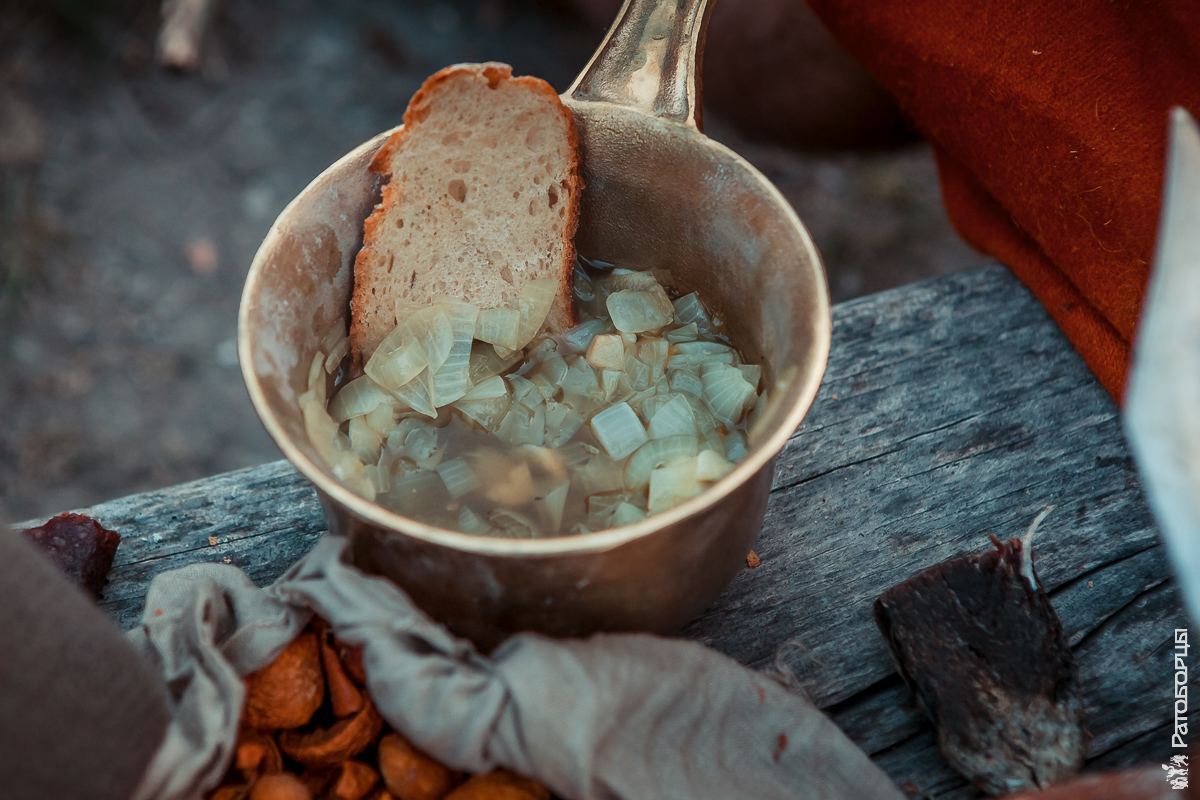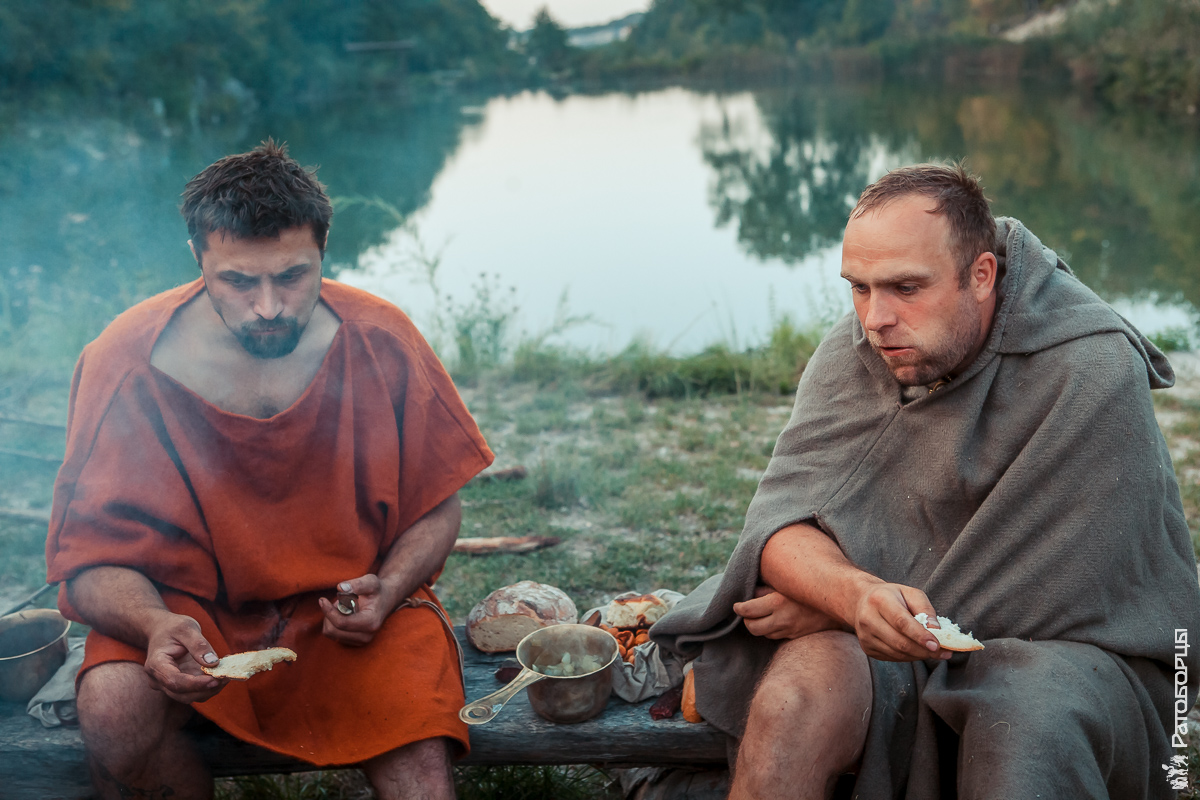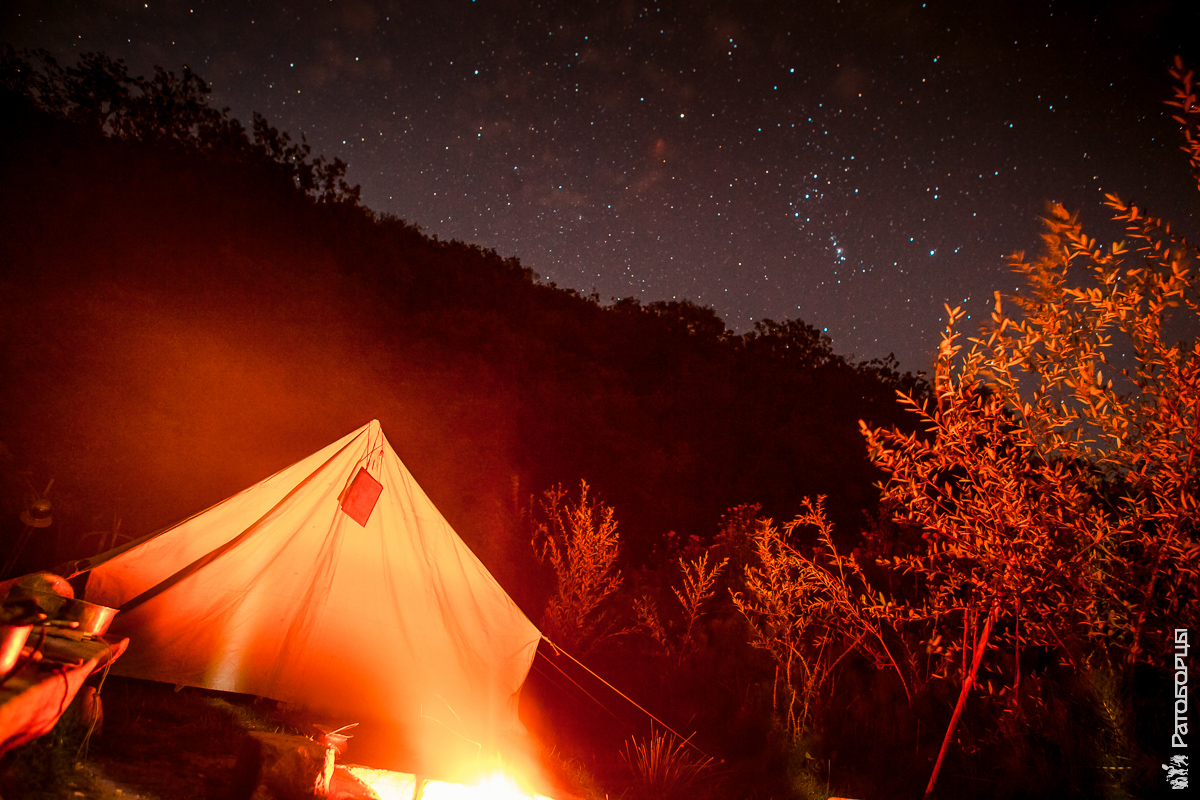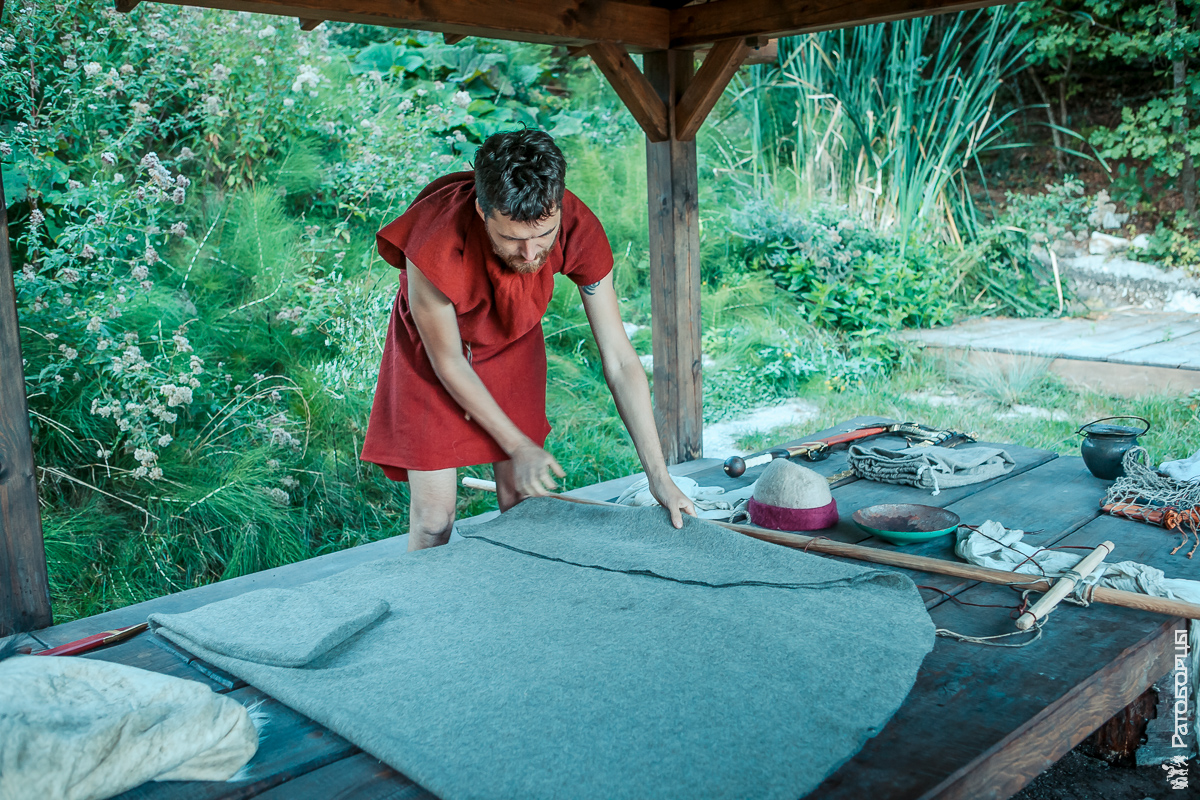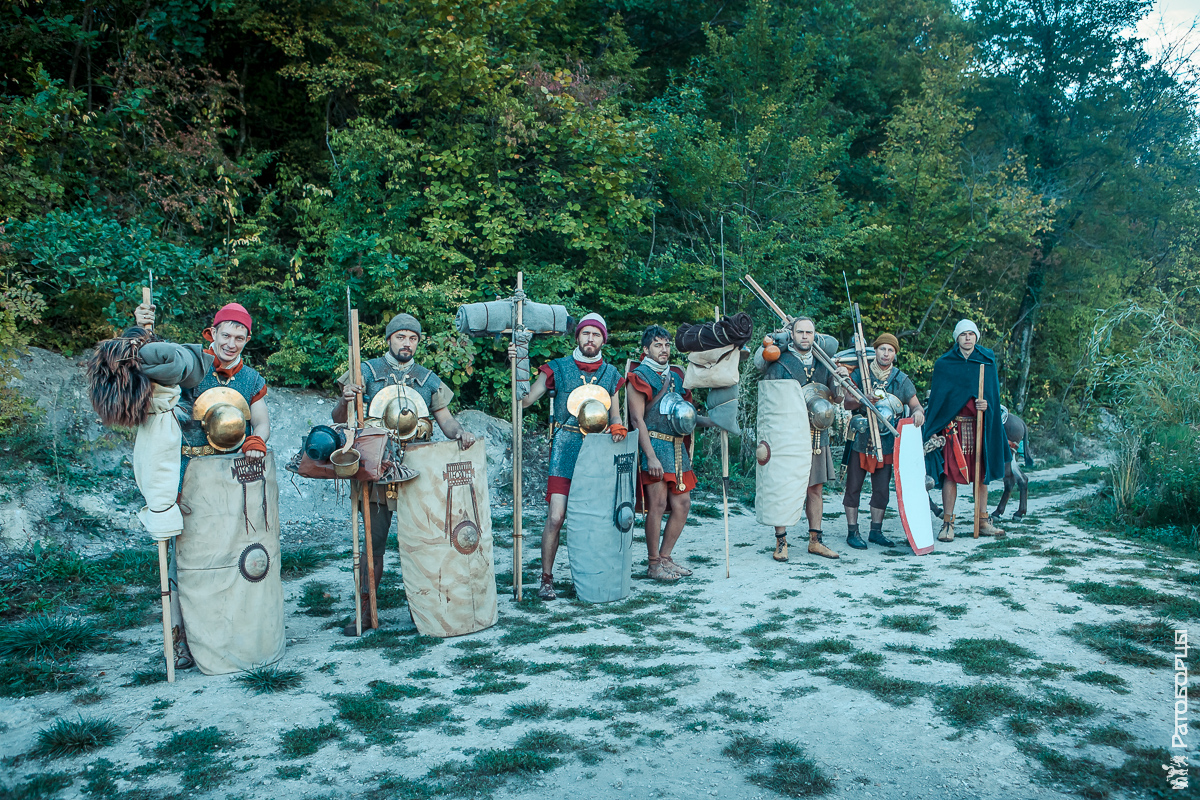To get to the cherished oasis, we had to go up to 280 m from the valley on the plateau, and then a couple of kilometers along the edge of the plateau. Height of 280 m doesn’t seem terrible, but it was not easy to take. We almost ran out of our water supply. We were really tired, we had a dull ache in our feet and calves after marching in flat caligae with a load of about 35 kg. And the serpentine road was very steep.
MARCH TO ESKI-KERMEN
Part 3. Oasis on the rock
In any case, this was the only road, so the «Marius’ mules» took the bit between their teeth and began the ascent. The speed was about 1.5 km/h. The ascent was very hard, the last 50 m was a slope of about 45 degrees. At the top we sheltered under a gentle shade of beautiful grove, caught our breath and shook off dust from caligae.
Then there was a nice earthroad through the forest that promised an easy and pleasant walk to the lake. The guide said it was within a mile of us. We were gasping for a drink, so we took our furcae and proceeded. After a couple of hundred steps the nice road transformed into a narrow path, overgrown with bushes. When the contubernium forced its way through the growth, legionaries found themselves on the brink of the abyss…
The rest of the way we should go along the goat track, balancing on the edge of a rocky ledge, jumping from rock to rock, as real legionaries during Dacian wars. We had no choice, so, we proceeded cursing up hill and down dale, recalling unfortunate legionnaries of Cornelius Fuscus’ army.
Most of all we were worried about our comrade-in-arms Fairy loaded with soldiers’ belongings. It was for nothing: the donkey swiftly jumped from stone to stone, despite the luggage.
You couldn’t say that about the legionaries. They were concerned about their balance on slippery stones, walked slowly and hesitantly, dragging equipment by piecemeal in particularly dangerous places.
Extreme thirst and monotonous calculation of each step displaced all thoughts except the desire to reach the oasis. Nevertheless, looking around, we admired fabulous views… From the plateau a great panorama of the entire province opened up. The harsh north-eastern borderland of the Empire amazed by its beauty and grandeur.
Finally, the most difficult, dangerous and, at the same time, delightful part of the way was left behind. Exhausted legionnaries gathered their last strength, regulated their pace and came down in a pleasant valley. Before the eyes of weary soldiers stretched out a delightful Satyr’s garden.
There was everything one could dream about. Spring of sweet chilling water, fabulous lakes with peculiar fish, a shady canopy of trees, promising freshness and firewood. Certainly, it was Fortuna, who brought warriors in this wonderful garden. Legionnaries offered up praise to Jupiter, placated local Dryads and Lares with dry wine, and finally quenched thirst that tormented them the last few hours. For a sound rest remained some things to do: break the camp, dig fortifications, cook hot food and put guards.
A camp for one contubernium consists of only one tent. There was no problem with brushwood and water, so the camp was broken quickly. We had neither strength nor ability or tactical necessity to make fortifications. I’m puzzled, how the Romans managed to make temporary fortifications in a stony and rocky ground. I hope, we’ll look into it in the course of future experiments. In any case, it’s impossible for urban mollycoddles to dig a ditch even in the humus, after such a march. So we shamelessly violated the field manual and focused on the cookery duel.
In this duel two teams were involved which cooked onion soup in the southern and northern Italian style. Hunger is the best cook, so both teams won. The success of the field kitchen were: garlic baked in the ashes, dried beef, onion soup, cakes, unleavened bread and hot stewed fruit. For the breakfast we stewed some wheat.
After a rough, but filling dinner, we decided to have fun and raffle off guard shifts with dices. Frivolous Fortuna scattered shifts as she wanted. Everybody exept guards went to bed. It was cosy inside the tent: crowded, but warm.
The first shift met a satyr, who told the optio a secret: our donkey Fairy, was actually an enchanted daughter of King Mithridates of Bosporus, murdered by his own son to please Caesar. Rest of the night guards admired southern stars, vigilantly carried service and tried to remove the spell from the unfortunate princess.
In the morning, after simple breakfast of wheat porridge and remnants of dinner, we started to equip furcae. It’s a sacred ritual for legionnaries, it’s just like a parachute for a Marine. Of course, life doesn’t depend on a furca, but health and well-being during the march depend considerably.
This time we packed up quickly, that’s the result of some experience. The sun just touched crests of the valley, and we were ready to leave. There was an ancient settlement ahead and arduous way home, to our castrum.
